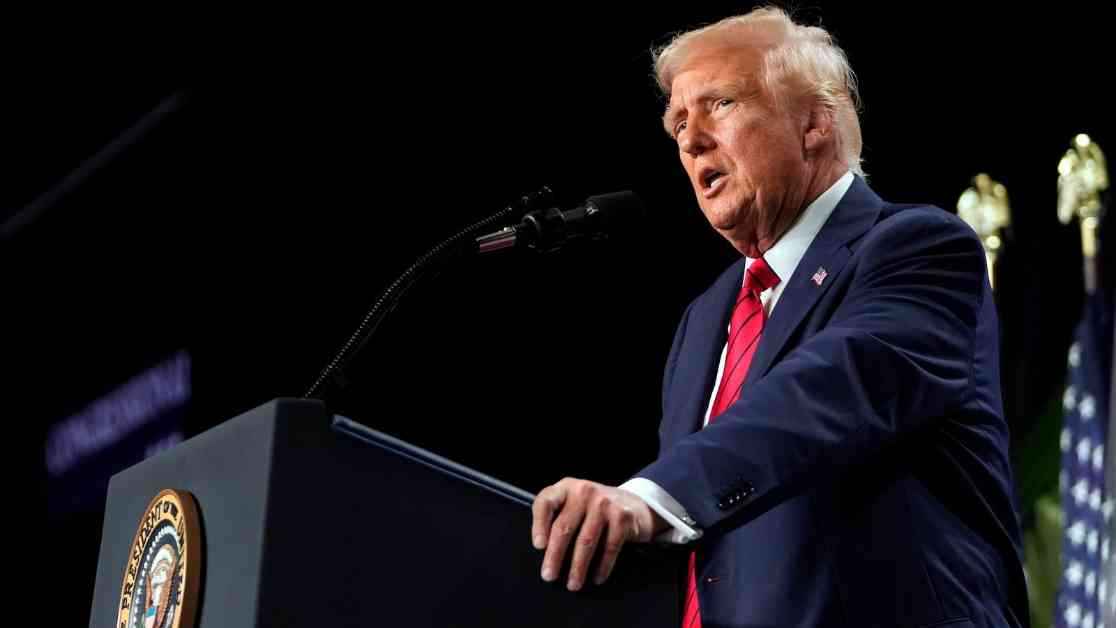The Trump Administration’s recent decision to reverse a funding freeze directive has sent shockwaves through the political landscape, raising questions and concerns about the future of financial assistance programs. A memo obtained by ABC News revealed that the Office of Management and Budget (OMB) had rescinded memorandum M-25-13, signaling a significant shift in policy.
Acting OMB director Matthew Vaeth’s brief memo stated, “OMB memorandum M-25-13 is rescinded,” adding, “If you have questions about implementing the President’s Executive Orders, please contact your agency General Counsel.” This abrupt turnaround came after a tumultuous 48 hours for the White House, during which states and local governments expressed fears that funding for critical services like health care, law enforcement, disaster aid, and infrastructure spending could be abruptly halted or delayed.
The confusion surrounding the freeze prompted White House press secretary Karoline Leavitt to defend the policy on social media, emphasizing that the administration still intends to implement a funding freeze. However, she did not specify the mechanism through which President Trump plans to enact this directive. Leavitt clarified, “This is NOT a rescission of the federal funding freeze. It is simply a rescission of the OMB memo.” Her statement aimed to quell concerns raised by the court’s injunction and underscored the administration’s commitment to rigorously implement the President’s Executive Orders on federal funding.
In response to the mounting uncertainty, a federal judge in Washington, D.C., issued a temporary stay on the policy through Monday to allow lawyers from the Department of Justice time to ascertain the scope and implications of the directive. The freeze was initially scheduled to take effect at 5 p.m. on Tuesday, adding urgency to the legal battle unfolding in court.
The lawsuit challenging the policy, filed by 22 state attorneys general, argued that without federal funding, states would struggle to provide essential services, pay public employees, and fulfill government obligations. The ongoing legal battle underscores the high stakes involved in this policy reversal, with implications for millions of Americans who rely on government programs for their well-being and livelihood.
As the situation continues to evolve, the White House’s decision to freeze federal funding has left states, local governments, and nonprofits scrambling to understand the potential impact on their programs. The swift reversal of the policy within 24 hours of its announcement added to the confusion, prompting the administration to issue a clarifying memo exempting certain programs like Social Security, Medicare, and SNAP benefits from the freeze.
During a tense hearing on Tuesday, a lawyer for the Department of Justice struggled to provide clarity on which programs would be affected by the funding freeze, highlighting the uncertainty surrounding the policy’s implementation. U.S. District Judge Loren L. AliKhan pressed the DOJ lawyer to clarify the extent of the freeze, questioning the federal government’s preparedness to handle the implications of the directive.
As this story continues to unfold, it underscores the complexities of government policy-making and the far-reaching consequences of funding decisions on everyday Americans. The ongoing legal battle and policy reversals serve as a stark reminder of the critical role government funding plays in sustaining essential services and supporting communities nationwide. Stay tuned for further updates as this developing story continues to unfold.


